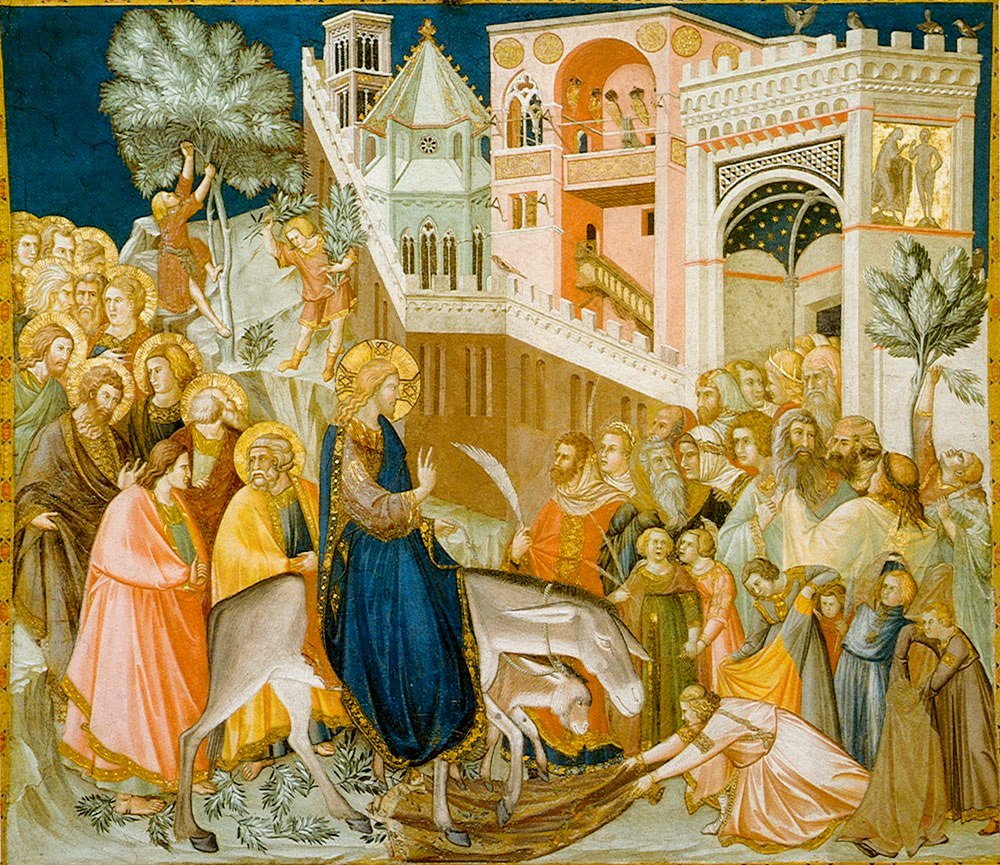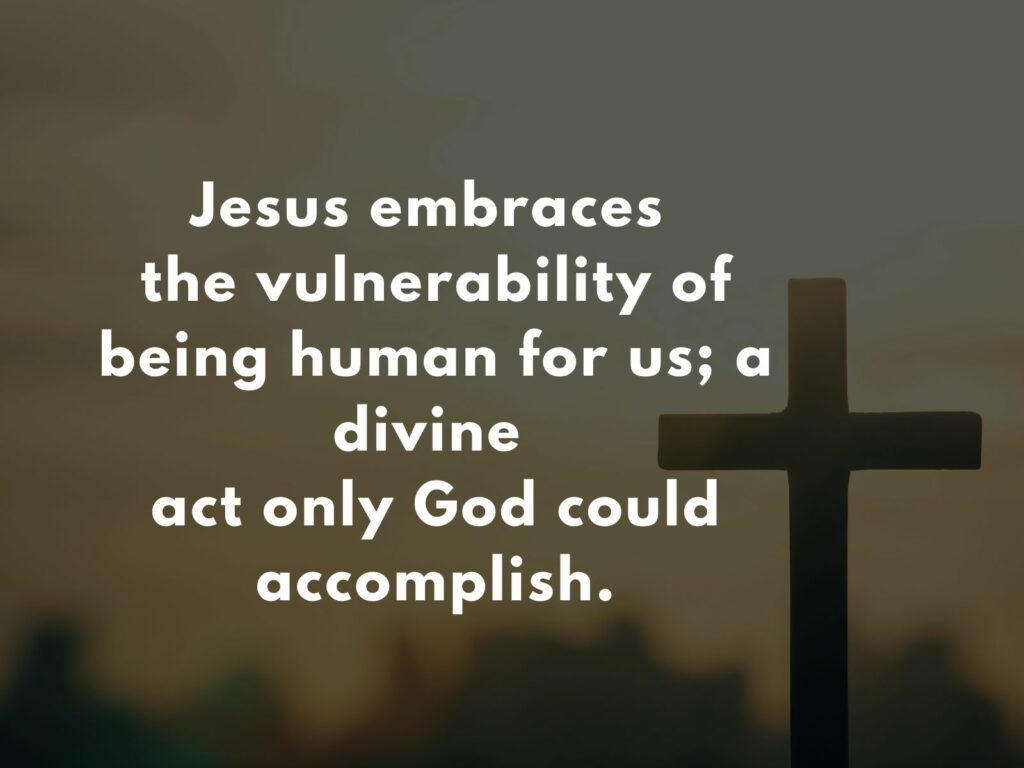Maundy Thursday, Year B
GETTING WASHED UP, HEAD TO TOE
John 13:1-17, 31b-35
Maundy Thursday
Analysis by Ella Moehlman
1Now before the festival of the Passover, Jesus knew that his hour had come to depart from this world and go to the Father. Having loved his own who were in the world, he loved them to the end. 2The devil had already put it into the heart of Judas son of Simon Iscariot to betray him. And during supper 3Jesus, knowing that the Father had given all things into his hands, and that he had come from God and was going to God, 4got up from the table, took off his outer robe, and tied a towel around himself. 5Then he poured water into a basin and began to wash the disciples’ feet and to wipe them with the towel that was tied around him. 6He came to Simon Peter, who said to him, “Lord, are you going to wash my feet?” 7Jesus answered, “You do not know now what I am doing, but later you will understand.” 8Peter said to him, “You will never wash my feet.” Jesus answered, “Unless I wash you, you have no share with me.” 9Simon Peter said to him, “Lord, not my feet only but also my hands and my head!” 10Jesus said to him, “One who has bathed does not need to wash, except for the feet, but is entirely clean. And you are clean, though not all of you.” 11For he knew who was to betray him; for this reason he said, “Not all of you are clean.”
12After he had washed their feet, had put on his robe, and had returned to the table, he said to them, “Do you know what I have done to you? 13You call me Teacher and Lord—and you are right, for that is what I am. 14So if I, your Lord and Teacher, have washed your feet, you also ought to wash one another’s feet. 15For I have set you an example, that you also should do as I have done to you. 16Very truly, I tell you, servants are not greater than their master, nor are messengers greater than the one who sent them. 17If you know these things, you are blessed if you do them.”
31b “Now the Son of Man has been glorified, and God has been glorified in him. 32If God has been glorified in him, God will also glorify him in himself and will glorify him at once. 33Little children, I am with you only a little longer. You will look for me; and as I said to the Jews so now I say to you, ‘Where I am going, you cannot come.’ 34I give you a new commandment, that you love one another. Just as I have loved you, you also should love one another. 35By this everyone will know that you are my disciples, if you have love for one another.”
He loves us to the end. He loves his betrayers, deserters and deniers.
DIAGNOSIS: Washed Up
Step 1: Initial Diagnosis (External Problem): Eager to please
I learned early on in life to only raise my hand in class if I had the right answer. Otherwise, I’d feel stupid. It is shameful and embarrassing to get something wrong, especially in front of others. Moreover, we learn early on that when we please our superiors, we get rewarded, be it with good grades, being the line leader, or no questions asked when we request a hall pass to use the bathroom.
Peter’s fickleness in his dialogue with Jesus, his backpedaling from “you will never wash my feet!” to “then wash my head and my hands also!” makes me believe he knew exactly how it felt to want to give the right answer, to make Jesus proud, to live up to his own reputation as a leader among the twelve.
Peter’s eagerness to please is not limited to the disciples of Jesus long ago but can be found present in the church today. It’s in every grandchild going through confirmation classes just to make grandma happy, and every young couple scheduling a wedding with the pastor – who also is asking about getting the child they have together baptized.
Step 2: Advanced Diagnosis (Internal Problem): Searching for reward
We want to show off how well we do in life, so that others can see us and praise us or be jealous of what we have. Isn’t that what the “my child is an honor student” bumper stickers are all about? Whether we display that fact on our minivans or not won’t change how well our kids are at school, but we like to take pride in our successes. We want to make Jesus proud and give him the right answer, but all for our own benefit. We want to be glorified. We trust in our own abilities to follow Jesus. We make being a follower of Jesus more about how it looks to the rest of the world than about what our heart is trusting.
Step 3: Final Diagnosis (Eternal Problem): The incriminating truth
As soon as our earthly rewards are in hand, we start looking for the next new thing. High School seniors get “senioritis” in the spring, employees who have put in their two-week’s notice start checking out, getting lazy and indifferent. We have it in the bag. Then comes the final answer on the test, and it is an open-ended essay question: How did you love one another as Jesus has loved you? Whether we think we are on track to make the honor list or whether we have been called into the guidance counselor’s office for our failing grades, we realize we all meet the same end. We can’t pass this one. We can’t make the grade or meet the demands. We cannot love like Jesus loves, giving up all pretense of honor, giving up our lives. Our love is like that of the disciples, love that betrays, love that deserts, love that denies. We cannot make ourselves right or clean before God.
PROGNOSIS: Washed in Love
Step 4: Initial Prognosis (Eternal Solution): My truth for yours… My life for yours
There is a reason Jesus says, “Where I am going you cannot come.” He goes where we cannot go and he does what we cannot do. When we know the end of a job is near we check out, give up, ready to focus on the next thing, too proud to do the menial tasks of our old job. Jesus knew the end of his work was near, his hour had come to depart from this world and return to his Father, yet he doesn’t check out, if anything his doubles down on his efforts. He loves us to the end. He loves his betrayers, deserters and deniers. He loves you and me so much so that instead of a failing grade on our final project, Jesus gives us his A+ and takes our F. Jesus’ glory is his death.
Step 5. Advanced Prognosis (Internal Solution): Trusting, with gratitude
Jesus is the one driving around with the “my child is an honor student” bumper sticker plastered on the back of his suburban. We get to revel in the fact that we, who were going to be dropouts, get Jesus’s final report card full of “Job-well-done-s.” Instead of pride in our own efforts, we have trusting gratitude in Jesus’ humility to stoop down and wash our slates clean. Indeed, we are washed head to toe in his righteousness!
Jesus washes everyone. He washed each of his disciples, even the one who was “unclean,” Judas, his betrayer. No matter how backwards our hearts are, Jesus kneels down to wash us. We are reminded of this every time a pastor leans over someone at the font to wash them in the water and the Word.
Step 6: Final Prognosis (External Solution): Eager to serve
It’s not about pride, but humility. As servants and messengers of the great master and teacher, the one who humbles himself, we see that we don’t get to be any better than him. We get to see that there is no competition and no reward for our grades or how successful we are in life. There’s no competition even for how well we can love like Jesus loves. We are simply freed and blessed to be able to serve others and deliver the message of Jesus.





